Abstract submission deadline: January 16, 2025
Private research consultant, Scotland
Challenges for animal production in the changing world
Research Institute for Farm Animal Biology (FBN), Germany
Current and future directions in livestock genetic improvement: advancing resilience and sustainability through genotype-to-phenotype research
University of Veterinary Medicine Vienna, Austria
Nutrigenomics – chances and challenges in animal production
Agricultural Research Organization (ARO), Volcani Center, Israel
Applications of data science, digital tools and precision farming in changing-world’s animal production
Institute of Genetics and Animal Biotechnology of the Polish Academy of Sciences
Animal welfare – does it pay off?
Weihenstephan-Triesdorf University of Applied Sciences, Germany
Public perception of livestock production
Chief of the Organizing Committee
University of Agriculture in Krakow – Poland
Chief of the International Scientific Board
University of Agriculture in Krakow – Poland
International Scientific Board
Isabel Casasus – European Federation of Animal Science (EAAP) – Spain
Andrea Rosati – European Federation of Animal Science (EAAP) – Italy
Joanna Makulska – University of Agriculture in Krakow – Poland
Marcin Pszczoła – Poznan University of Life Sciences – Poland
Tomasz Szwaczkowski – Poznan University of Life Sciences – Poland
Justyna Batkowska – University of Life Sciences in Lublin – Poland
Radovan Kasarda – Slovak University of Agriculture in Nitra – Slovakia
Ludmila Zavadilová – Institute of Animal Science, Prague – Czech Republic
Klaus Wimmers – Leibniz Institute for Farm Animal Biology (FBN) – Germany
Johann Sölkner – University of Natural Resources and Life Sciences, Vienna – Austria
István Nagy – Hungarian University of Agriculture and Life Sciences – Hungary
Denis Kučević – University of Belgrade – Serbia
Muhamed Brka – University of Sarajevo – Bosnia and Herzegovina
Mariana Petkova – Institute of Animal Sciences Kostinbrod – Bulgaria
Mauro Spanghero – University of Udine – Italy
Organizing Committee
Joanna Makulska – University of Agriculture in Krakow – Poland
Zygmunt Maciej Kowalski – University of Agriculture in Krakow – Poland
Andrea Rosati – European Federation for Animal Science (EAAP) – Italy
Dorota Zięba-Przybylska – University of Agriculture in Krakow – Poland
Anna Wójcik – President of the Polish Society of Animal Production – Poland
Tomasz Szwaczkowski – President of the Committee on Animal Sciences and Aquaculture of the Polish Academy of Sciences – Poland
Andrzej Sechman – Vice-Rector of the University of Agriculture in Krakow – Poland
Sylwester Świątkiewicz – Vice-Director of the National Research Institute of Animal Production in Balice – Poland
Justyna Batkowska – University of Life Sciences in Lublin – Poland
Edyta Bauer – University of Agriculture in Krakow – Poland
Federico Liguori – European Federation for Animal Science (EAAP) – Italy
Aurelia Mucha – National Research Institute of Animal Production in Balice – Poland
Joanna Płużańska – Polish Society of Animal Production – Poland
Joanna Pokorska – University of Agriculture in Krakow – Poland
Marcin Pszczoła – Poznan University of Life Sciences – Poland
Tomasz Schwarz – University of Agriculture in Krakow – Poland
Grzegorz Żak – National Research Institute of Animal Production in Balice – Poland

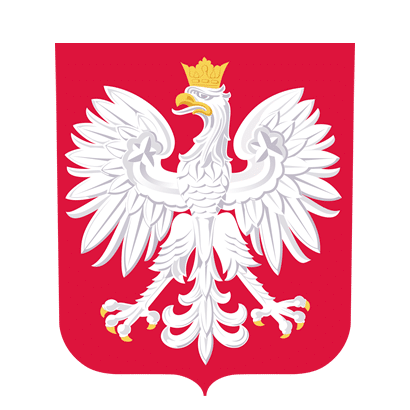
The Congress Center of the University of Agriculture in Krakow is a modern facility located in the heart of the university campus. Designed to host conferences, seminars, and academic events, the center is equipped with state-of-the-art technology and versatile spaces that can accommodate a wide range of activities. The architecture of the center, characterized by clean lines and sustainable materials, reflects the university’s commitment to innovation and sustainability. Due to its strategic location and excellent infrastructure, the Congress Center is a key venue for academic and professional gatherings.
You can easily find hotels and accommodations in the heart of Nicosia, as well as near the Agricultural Research Institute campus where the conference will be held. Enjoy convenient options for combining both business and leisure days in this vibrant city.
Some examples:
To provide the best experiences, we use technologies such as cookies to store and/or access information on the device. Consent to these technologies will allow us to process data such as browsing behavior or unique IDs on this site. Not consenting or withdrawing consent may negatively affect some features and functions.

Neogen provides an extensive range of high-quality, cost effective genotyping and sequencing solutions and services for a wide range of species. Neogen have an extremely efficient state-of-the-art laboratory based in Europe, offering rapid turnaround times to empower your research-based decision making.
Neogen’s high quality array portfolio provides efficient testing to develop targeted predictions and research opportunities across a wide range of species. Neogen’s GGP chips combine outstanding design and evenly spaced coverage of the genome with SNP parentage marker and causative content. SNPs with optimal genome coverage, recombination rates and minor allele frequency representation have been selected for use within these arrays. Popular arrays include the GGP Bovine 100K array, the GGP Ovine 50K array, the GGP Equine 70K array and the GGP Porcine 50K array.
In addition to their genotyping services, Neogen is also a leader in the innovation of whole genome sequencing, offering the most detailed view into your genetic programme by evaluating every base in the genome and navigating the complexity of genomic variants that make individuals unique.
Neogen also provides SkimSEEK™ low pass sequencing with imputation for select species (including bovine, porcine, canine and feline), in addition to a new technology called InfiniSEEK™. Combining Neogen’s world-class laboratory services with Gencove’s imputation pipelines and advanced analytics platform, InfiniSEEK™ delivers the necessary insights to confidently select superior individuals from bovine breeding populations and research objectives.
Can Neogen help with your research?
The Neogen team is ready to assist with any genotyping or sequencing research project, whether it’s current or in the planning stages. Simply email contactgenomics@neogen.com with your enquiry.

Chris Knight is a private research consultant based in Ayr, Scotland. Historically, Ayr was the home of the Hannah Research Institute where Chris spent 27 years as a lactation researcher. In 2006 the Institute was closed as part of a large governmental reorganisation, and a year later Chris became Professor of Production Animal Physiology in the University of Copenhagen, Denmark. There he spent nine happy years working with students eager to learn about physiology (including heading-up an Erasmus Mundus MSc Programme, Food of Life) and researching various lactation-related topics. These included water-transport through the mammary cell, interactions between pathological and physiological inflammatory responses in the mammary gland and the final establishment of copious milk secretion (lactogenesis stage three) in animals and humans. He then became focused on welfare physiology in dairy animals and was heavily involved in the development of what became known as Precision Livestock Farming, although he prefers the acronym CALM Farming (Computing Assisted Livestock Management). In 2016 with EU COST funding in place and the invitation to become Editor in Chief of the Journal of Dairy Research he returned to Scotland. His consultancy interests focus on research dissemination and funding but he also retains several research collaborations.

Director, Research Institute for Farm Animal Biology (FBN)
Professor, Animal Breeding and Farm Animal Husbandry, University of Rostock
Prof. Dr. Klaus Wimmers is an expert in the physiological, genetic, and epigenetic foundations underlying trait expression and differentiation, particularly in relation to animal welfare and resource efficiency. As Director of FBN and Professor at the University of Rostock, he leads a team focused on these themes and actively participates in FAANG (Functional Annotation of Animal Genomes) initiatives, contributing to genome annotation efforts in pigs and chickens.
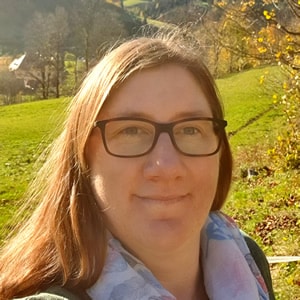
Susanne Kreuzer-Redmer’s research focuses on the interaction between genetics, nutrition, and immunity in farm animals. A key area of her work is investigating the role of microRNAs as post-transcriptional gene regulators, as well as their potential as biomarkers—specifically circulating microRNAs in blood—to identify and monitor pathological conditions in animals.
In addition, she develops cell culture models for various species, including chickens, pigs, cattle, and horses, to explore the immunomodulatory effects of dietary components such as probiotics and functional feed additives. Dr. Kreuzer-Redmer also contributes to animal nutrition research at the European level, serving as Vice President of the Commission on Animal Nutrition of the European Federation of Animal Science (EAAP).
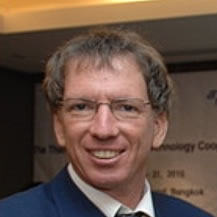
Ilan Halachmi is Senior Research Scientist, Head of the Lab For Precision livestock farming (PLF) at Volcani Institute.
Ilan grew up on a happy four-generation family farm, cultivating livestock and varied seasonal arable farming. The farm is still active in the family. Ilan had a mechanical engineering BSc study at the Technion Haifa, an MSc in BGU, and PhD in Wageningen, Netherlands.
Selected International EU research projects: 2020 EU Horizon – ‘TechCare’; ‘Sm@RT’, EU-FACCE- ‘FreeWalk’; ‘OptiBarn’ Optimized animal-specific barn climatization facing temperature rise and increased climate variability. EU-FP7: ‘EU-PLF- Bright Farm by Precision Livestock Farming. ‘Bio-business.. EU-FP6. Optiscore – creation of animal condition scoring protocols using new electronic sensors.

Dr Irene Camerlink is a researcher in animal behaviour and welfare, with a focus on the social behaviour of pigs. She is employed as Associate Professor (Hab.) at the Institute of Genetics and Animal Biotechnology of the Polish Academy of Sciences. She is Editor-in-chief of the journal Applied Animal Behaviour Science, and editor of the books ‘Animal Welfare in Practice: Pigs’ and ‘Bridging Research Disciplines to Advance Animal Welfare Science’. She studies pig behaviour and welfare by combining genetics, ethology, behavioural ecology and social sciences.
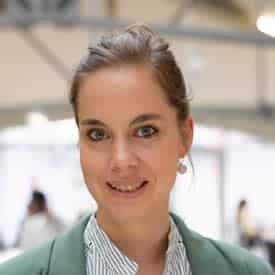
Gesa Busch is Professor for Food Consumption and Wellbeing at the University of Applied Sciences Weihenstephan-Treisdorf since 2022. Her research focuses on agriculture-society interactions, social acceptability of farming systems with a focus on ethics and animal welfare, and sustainable consumer and nutrition behavior. She is passionate about understanding societies view on agriculture and enabling sustainable food choices for consumers.
Prof. Busch studied Agricultural Sciences with specialization in Agribusiness Management and obtained her PhD in Agricultural Sciences in the year 2016 from the University of Goettingen. During her PhD she spent 6 months in the Animal Welfare Program at the University of British Columbia, Canada. Between 2016 and 2019 she worked at the Free University of Bolzano-Bozen, Italy and between 2019 and 2022 she hold a Post-Doc position at the University of Göttingen.

Professor in Animal Science
Researcher and teacher at the Department of Genetics, Animal Breeding and Ethology, the University of Agriculture in Krakow, Poland. Professional interests include: collecting and processing data for supporting management decisions in various livestock production systems to improve economic efficiency, animal welfare, product quality and environment protection, optimization of livestock management strategies toward environmental, economic and social sustainability, application of data mining and intelligent systems in cattle farming management.
Author of 171 publications on livestock breeding and production, economic, environmental and social sustainability of livestock production, associations between animal health and welfare, performance and product quality. Coordinator of research projects of the Polish Ministry of Science and Higher Education, the Leonardo da Vinci project, an expert in several projects of DG AGRI (EU), member of the Steering Committees in the Erasmus + Strategic Partnership project and COST Action, national coordinator of the Horizon Europe project on strengthening farm health and safety, member of the Board of the Polish Society of Animal Production, organiser of many conferences and scientific meetings. Lecturer in the Erasmus Intensive Programmes, supervisor of PhD students and university teacher with over 30 years of experience.
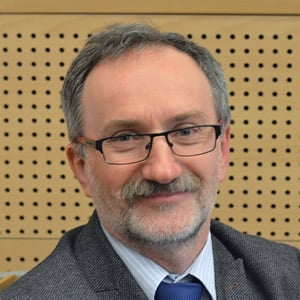
Professor in Animal Science.
Head of the Department of Animal Nutrition and Biotechnology, and Fisheries, Faculty of Animal Science, The University of Agriculture in Krakow, Krakow, Poland.
Head of Doctoral School of The University of Agriculture in Krakow.
Author of over 800 publications, including 122 original papers in peer-reviewed indexed periodicals (Journal of Dairy Science, Journal of Animal Science, Livestock Production Science, Animal Feed Science and Technology). Author of many advisory publications for milk producers, cow and calf nutrition advisers and veterinarians.
The main fields of research activity include:
feeding of high-yielding cows,
monitoring and prevention of metabolic diseases in dairy cows, especially ketosis
protein, amino acids, and fats in dairy cow diets,
protein, and energy evaluation systems for ruminants,
systems of dairy calf rearing,
additives to promote the growth and development of dairy calves.
Co-author of a national monitoring system for subclinical ketosis of dairy cows based on the determination of ketone bodies in milk using the FTIR technique.
A very well-known in Poland speaker of numerous courses, lectures, and seminars for students, farmers, extension workers, feed distributors, and veterinarians. Supervisor of several PhD students, and coordinator of numerous scientific projects conducted on ruminants, mainly dairy cows and calves. Expert in practical dairy cow and dairy calf feeding.